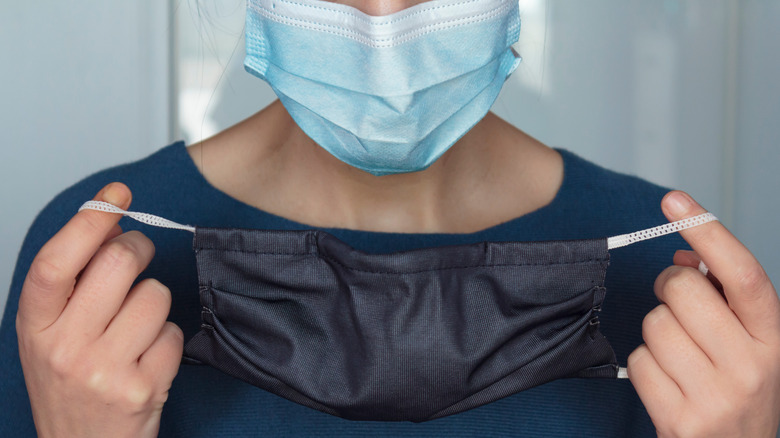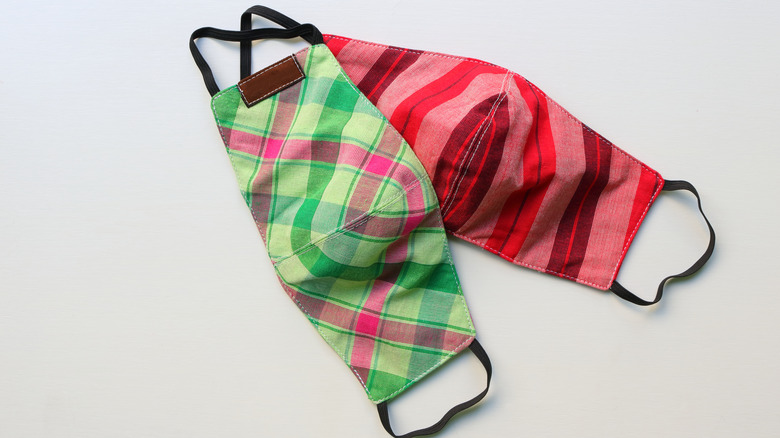Why The COVID-19 Omicron Variant Means You Should Rethink Your Cloth Mask
At the start of the pandemic, many people referenced online instructional videos to construct their own DIY face masks at home. Using everyday objects such as elastic hair bands and a t-shirt, people began donning self-made face masks to protect themselves and others from COVID-19 infection (via Healthline). These cloth face coverings were a widely used alternative early on in the pandemic as the U.S. endured shortages of face masks and other PPE, as explained in a report by Elsevier Public Health Emergency Collection. Since then, many decorative and stylish versions of cloth face masks have been, and continue to be, sold in stores.
While cloth masks can be made out of different materials, researchers have since determined that the crisscross fibers of cotton face coverings prove most effective at filtering potentially contaminated particles when compared to other fabrics (via National Institute of Standards and Technology). Even so, science continues to show that when compared to the effectiveness of medical or N95 masks in the prevention of COVID-19, cloth masks simply do not hold up.
As cited in the scientific journal, Emerging Infectious Diseases, findings of a 2020 study state, "The filtration, effectiveness, fit, and performance of cloth masks are inferior to those of medical masks and respirators." Now, with the surge of the COVID-19 Omicron variant, health experts believe that cloth masks may no longer be a viable defense against the virus.
Cloth masks can be used for additional layering but should not be worn alone
Medical analyst and emergency physician Dr. Leana Wen states told CNN, "Cloth masks are little more than facial decorations. There's no place for them in light of Omicron." Wen went on to say that while cloth masks may be used as additional protective covering when placed over a "three-ply surgical mask," they should not be worn as one's sole form of protection against the very contagious variant.
Rather than cloth masks, Wen advises the use of KN95 or N95 face masks. Erin Bromage, associate professor of biology at the University of Massachusetts Dartmouth, explained the difference in filtration effectiveness between cloth masks and N95 masks, telling CNN that while cloth masks can serve as a barrier against large droplets, N95s can protect against both large and small air particles.
N95 respirator masks approved by the National Institute for Occupational Safety and Health can filter up to 95% of air particles, according to the Centers for Disease Control and Prevention. An N95 mask only has between 1 to 10% of inward and outward leakage, while a cloth mask shows a rate of 75% inward and outward leakage, according to the American Conference of Governmental Industrial Hygienists.
In light of the surge of the highly transmissible Omicron variant, former U.S. Surgeon General Dr. Jerome Adams told CNN, "We need to be promoting better high-quality masks everywhere, because right now a single-layer cloth mask just isn't cutting it against Omicron."


